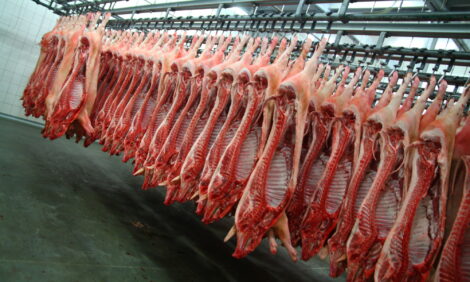



Progress on Improving Feed Conversion Efficiency
A review of progress on Pork CRC's Program Two on improving herd feed conversion efficiency by programme manager, Professor Frank Dunshea.
Although there are daily injectable metabolic modifiers such as porcine somatotropin (pST) available for the Australian pork industry, the Pork CRC has been very interested in orally active compounds that may cause metabolic shifts that result in similar improvements in body composition, in particular reductions in fat depth.
The orally active dietary additives investigated include the β-agonist ractopamine, cysteamine, chromium, lecithin, betaine and dietary narcolpetics.

Loving Lysine
Charles Rikard-Bell found that ractopamine increases lean tissue deposition in all sexes beyond 60kg and recent evidence suggests that 0.56g and 0.60g available lysine/MJ DE should be sufficient to maximise performance in boars and gilts fed 5ppm or 7ppm ractopamine. Tony Edwards demonstrated that the response to ractopamine is optimised when high-energy diets are fed to ensure there is sufficient energy for lean tissue deposition.
Stimulating Somatotropin
Cysteamine may stimulate somatotropin secretion in pigs and, under some circumstances, can increase average daily gain (ADG) and decrease back fat. David Miller’s research suggests that the responses are variable and further work may be needed to define the dose response curve. Responses to dietary chromium have also been variable and this may be in part due to inefficient digestion and absorption.
Improving Growth
Alex Hung has found that micro- and nano-particles of chromium may increase efficacy of dietary chromium and improve insulin sensitivity and growth performance in pigs. Henny Akit has found that dietary lecithin offers a means of reducing skeletal muscle collagen and improving meat quality.
Dietary betaine has the potential to reduce maintenance requirements and in some circumstances this additional energy can be used for protein deposition or milk production.

Improving Reproduction
Will van Wettere has shown that betaine supplementation during lactation can be used to improve subsequent reproductive performance in sows and this has been widely adopted by the pork industry. Dietary narcoleptics offers a means of reducing sexual and aggressive activities in finisher pigs, specifically boars and improve growth performance, e.g. dietary bromide has been shown to improve feed intake and growth performance.
Pushing Performance
Responses to dietary feed additives are generally not as powerful as the responses to pST, but they offer an alternative means to manipulate growth performance and carcass quality.
In addition, the Pork CRC has investigated means of improving the efficacy and delivery of pST, as well as alternative targets. Injection of pST in vegetable oil can prolong the activity of pST for up to four days, but the delivery is problematic. Two Pork CRC studies demonstrated the benefit of using pST treatment as a means of reducing down-regulation of response to ractopamine, allowing the growth response to be extended.
Improving Weight
Also, Kathy Gatford’s research has demonstrated that pST treatment during strategic stages of gestation can improve piglet weight. Many of these findings will be highlighted in a special issue of Animal Production Science to be published later this year.
June 2011







